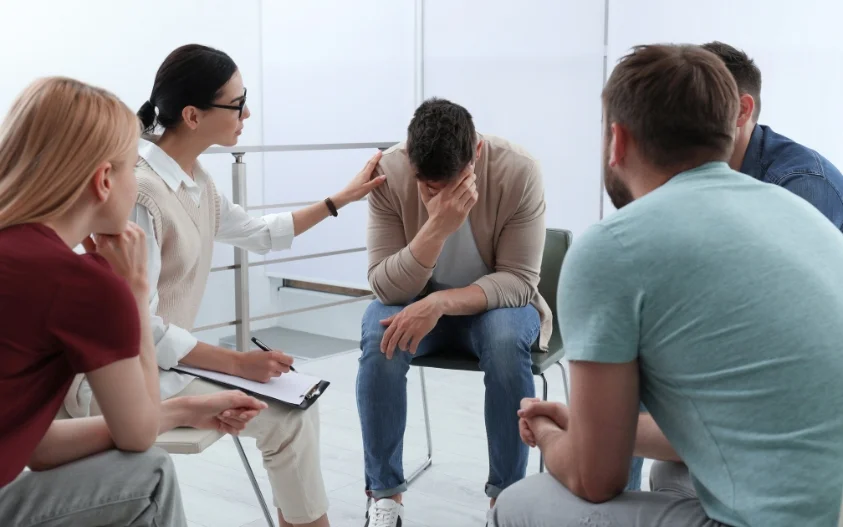24/7 Helpline:
(866) 899-221924/7 Helpline:
(866) 899-2219
Learn more about Anxiety Treatment centers in Josephine County

Other Insurance Options

Health Partners

BlueShield

UnitedHealth Group

EmblemHealth

Evernorth

Private insurance

Covered California

Coventry Health Care

WellPoint

Humana

Optima

Horizon Healthcare Service

Medical Mutual of Ohio

Holman Group

Self-pay options

Carleon

Group Health Incorporated

ComPsych

Aetna

Access to Recovery (ATR) Voucher

Choices Counseling Center
Choices Counseling Center is a private rehab located in Grants Pass, Oregon. Choices Counseling Cent...

Ontrack
Ontrack is a non=profit rehab located in Grants Pass, OR. Ontrack have and intensive and regular out...

U Turn For Christ
U-Turn For Christ is a two-month minimum residential ministry of restoration for men struggling with...

Royale Gardens Health and Rehab
Royale Gardens Health and Rehab is a private rehab located in Grants Pass, Oregon. Royale Gardens He...






























































Options for Southern Oregon – Creekside
Options for Southern Oregon – Creekside is a private rehab located in Grants Pass, Oregon. Options f...

Kairos New Beginnings
Kairos New Beginnings is a private rehab located in Grants Pass, Oregon. Kairos New Beginnings speci...

Josephine County Community Corrections – Substance Abuse Program
Josephine County Community Corrections – Substance Abuse Program is a public rehab located in Grants...

ADAPT
ADAPT is a private rehab located in Grants Pass, Oregon. ADAPT specializes in the treatment of alcoh...

Dual Solutions Continuum of Care
Dual Solutions Continuum of Care is a non-profit rehab located in Grants Pass, Oregon. Dual Solution...

KAIROS
KAIROS is a private rehab located in Grants Pass, Oregon. KAIROS specializes in the treatment of Men...










































